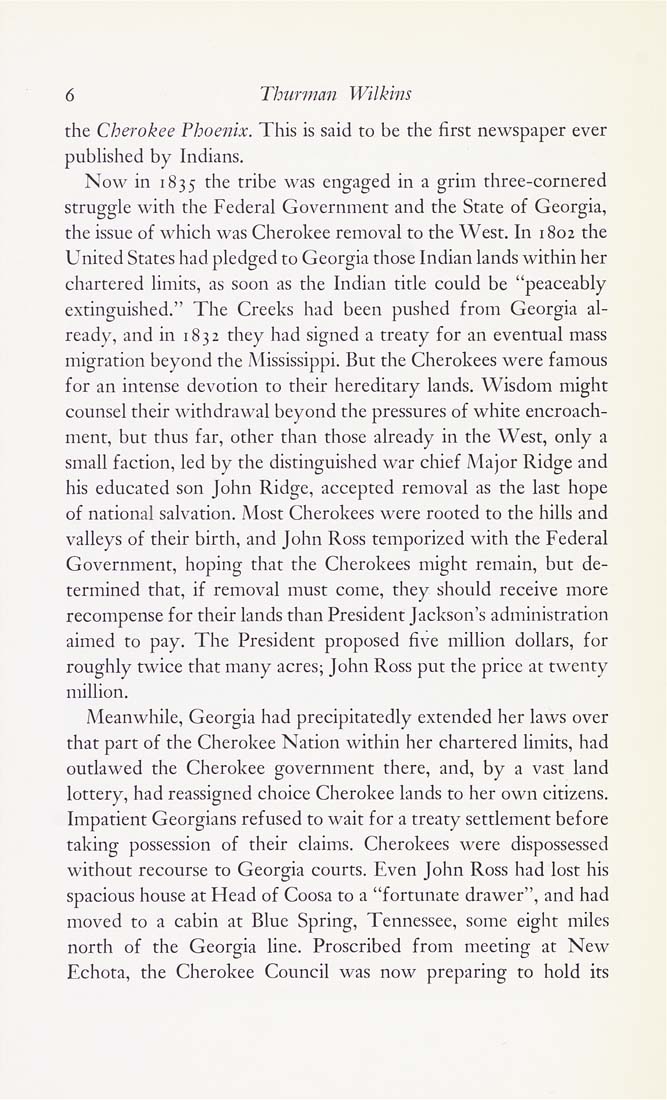Columbia Library columns (v.12(1962Nov-1963May))
(New York : Friends of the Columbia Libraries. )
|
||
|
|
|
|
| v.12,no.1(1962:Nov): Page 6 |

6 Thurman Wilkins the Cherokee Phoenix. This is said to be the first newspaper ever published by Indians. Now in 1835 ths tribe was engaged in a grim three-cornered struggle with the Federal Government and the State of Georgia, the issue of which was Cherokee removal to the West. In 1802 the United States had pledged to Georgia those Indian lands within her chartered limits, as soon as the Indian title could be "peaceably extinguished." The Creeks had been pushed from Georgia al¬ ready, and in 1832 they had signed a treaty for an eventual mass migration beyond the Mississippi. But the Cherokees were famous for an intense devotion to their hereditary lands. Wisdom might counsel their withdrawal beyond the pressures of white encroach¬ ment, but thus far, other than those already in the West, only a small faction, led by the distinguished war chief Major Ridge and his educated son John Ridge, accepted removal as the last hope of national salvation. Most Cherokees were rooted to the hills and valleys of their birth, and John Ross temporized with the Federal Government, hoping that the Cherokees might remain, but de¬ termined that, if removal must come, they should receive more recompense for their lands than President Jackson's administration aimed to pay. The President proposed five million dollars, for roughly twice that many acres; John Ross put the price at twenty million. Meanwhile, Georgia had precipitatedly extended her laws over that part of the Cherokee Nation within her chartered limits, had outlawed the Cherokee government there, and, by a vast land lottery, had reassigned choice Cherokee lands to her own citizens. Impatient Georgians refused to wait for a treaty settlement before taking possession of their claims. Cherokees were dispossessed without recourse to Georgia courts. Even John Ross had lost his spacious house at Head of Coosa to a "fortunate drawer", and had moved to a cabin at Blue Spring, Tennessee, some eight miles north of the Georgia line. Proscribed from meeting at New Echota, the Cherokee Council was now preparing to hold its |
| v.12,no.1(1962:Nov): Page 6 |







